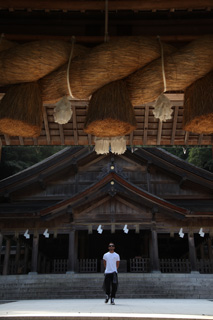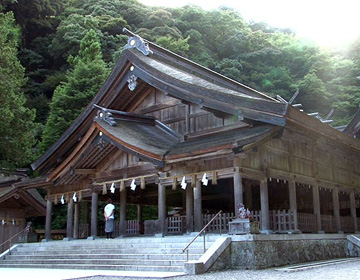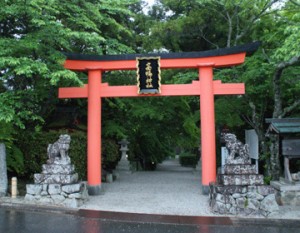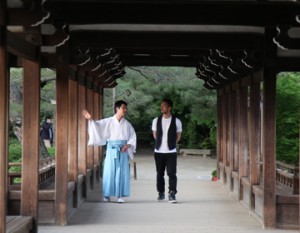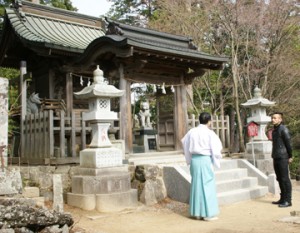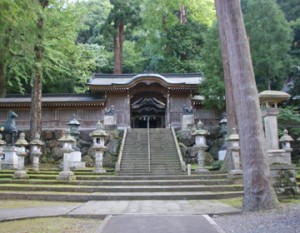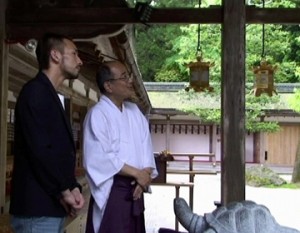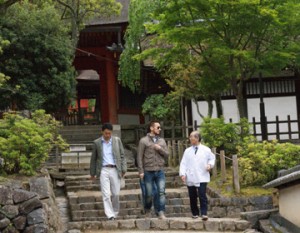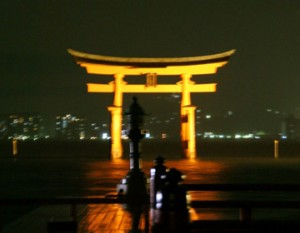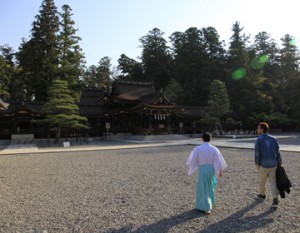Miho Shrine, worshipped by people involved in the fishing and shipping industries
Upon arriving at the small fishing town of Mihoseki, a walk through “Aoishidatamidori” is recommended. The street is lined with old houses, inns and museums that add a nostalgic ambience. It deeply reflects the days when the town prospered in shipping, as if the street has gone back in time. At the end of the 250 meter street is Miho Shrine. Many local foods such as squid dried overnight are sold at the entrance. It may be a good idea to taste some fresh seafood before paying a visit to the shrine.
Miho Shrine has been revered by people associated with fishing and shipping. The wife of Ookuninushino Mikoto, Mihotsumino Mikoto and his son Kotoshironushinokami are enshrined here.
Kotoshironushinokami is actually Ebisu-sama, one of the Seven Gods of Good Fortune. There are 3385 shrines which enshrine the god of prosperous business, shipping, and fishing throughout Japan, and Miho Shrine Shrine is the head shrine.
Ebisu-sama loves musical instruments
Since Ebisu-sama is said to love musical instruments, there is a custom to offer musical instruments as a token of prayer. Surprisingly, among the instruments offered, as many as 846 are Important Cultural Properties. Rare instruments such as the oldest accordion in Japan, and ”shamisen” which once belonged to Royu Ogie.
Architecture of Miho Shrine is also a point of interest. The characteristic style having two main shrines on the left and right is called “Miho zukuri”. A large sea bream figure is also very impressive. To pray, stroll, or eat, Miho Shrine is filled with points of interest. It is an ideal shrine for a slow and leisurely outing.
